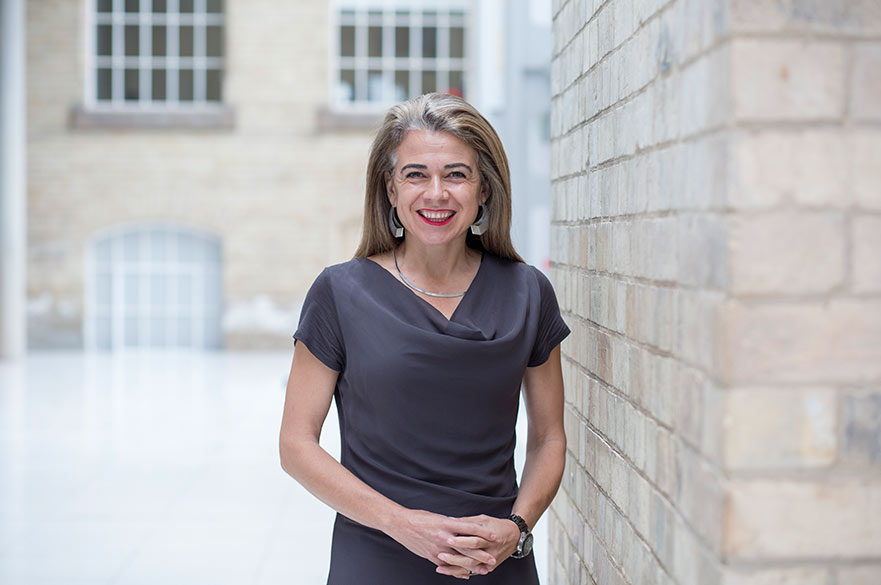Nottingham Business School’s Responsible and Sustainable Business Lab interviews prominent human rights lawyer as part of UK Global Challenges Research Fund project
Professor Mollie Painter, head of the Responsible and Sustainable Business Lab, interviewed Brian Currin as part of a UK Global Challenges Research Fund project

The Responsible and Sustainable Business Lab (RSB Lab) is a bespoke research centre within Nottingham Business School (NBS). The RSB Lab is dedicated to the promotion and dissemination of research, training and practitioner engagement around responsible and sustainable business practice. As part of her work, Professor Mollie Painter works on integrating responsible leadership, ethics and accountability into NBS’s postgraduate programmes.
Prof. Mollie Painter and Rabbi Gideon Pogrund from GIBS’ Ethics and Governance Think Tank were honoured to interview Brian Currin as part of a UK Global Challenges Research Fund (GCRF) project on Speak-out Cultures. The interview took place online as part of GIBS’ Flash Forums. The research project is designed to understand what drives whistle-blowers and others who speak-out against unethical acts, and to determine how a speak-out culture may be developed within organisations and society as a whole.
In the interview, Currin was invited to reflect on his experience as a human rights lawyer under Apartheid, his mediation work in Northern Ireland and the Basque country, and his more recent involvement in revealing the Gupta Leaks, what he has learned about moral courage and what it takes to speak out. For Currin, what has driven him throughout his work is a deep-seated sense of justice.
Brian has garnered praise in recent years for his involvement in the Gupta Leaks. The Gupta Leaks refer to the disclosure of evidence via approximately 300,000 emails that revealed how various members of the Gupta family, President Jacob Zuma’s son Duduzane Zuma, and UK public relations firm, Bell Pottinger, amongst others, perpetrated what broadly became known as state capture, i.e. the capture of prominent South African state institutions through corruption and political meddling. Currin assisted the whistleblowers to safeguard their evidence that proved state capture and facilitated their safe passage out of the country, as well as raising money to support them and their families.
The interview not only discussed Brian’s career, but also key concepts of ethics, moral courage and trust regarding the act of whistleblowing. He discussed the difficulty that comes with taking a stand and building relationships based on trust. The group debated the place of social media in this sphere, as the possibility of anonymity provides more opportunity for people to be courageous, while removing accountability.
Currin also commented on the COVID-19 pandemic: “Perhaps this crisis forces us to recognise what we should have been pursuing a long time ago, i.e. strategies to build trust and relationships between the public sector and private sector. The toxic relationship between public and private can only undermine equality. This crisis may finally challenge all of us to put shoulder to the wheel.”
The full interview is available here: https://www.youtube.com/watch?v=is85jp6TNYo
- Category: Business; Nottingham Business School


